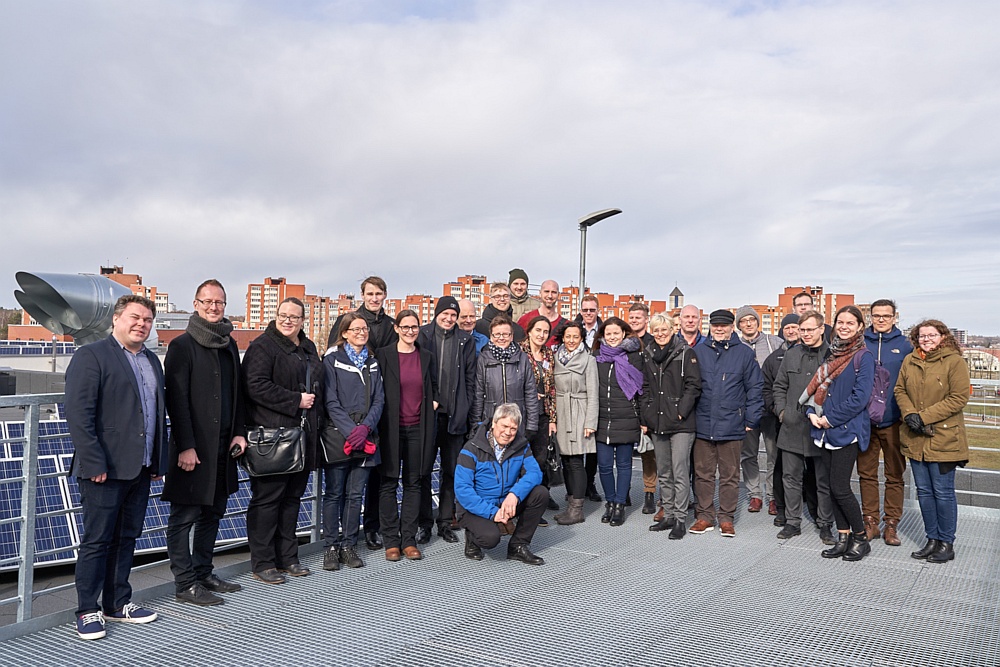The modernization and expansion of district heating networks is leading to forward-looking supply systems that transfer heat at lower temperatures in optimally insulated pipes and at the same time use renewable heat sources. These adaptations are an important building block for sustainable energy supply and the reduction of greenhouse gas emissions. The Interreg Baltic Sea Region project LowTEMP, initiated by aconium, is developing solutions to this issue.
The fourth LowTEMP partner meeting took place in Lithuania from March 20 to 22, 2019. It was hosted by the University of Klaipeda (Lithuania), the leading partner in the development of an online platform that pools data and knowledge on the topic of district heating.
Web-based knowledge platform for district heating
The platform provides information on existing heating systems, heating requirements, network operators and available approaches and methods for the use of low-temperature district heating from the partner countries in the Baltic Sea region. It also provides an overview of the current status of intelligent energy supply systems and the use of renewable energies in the Baltic Sea region. The platform is therefore an important source of information and data for the modernization of existing heat supply systems. From April, the LowTEMP partners will feed data from local and regional energy suppliers into the platform – initially in a test run until May in order to further optimize the knowledge platform. The hosts presented the knowledge platform for district heating at the project meeting in Klaipeda.
The three-day program also included a tour of the port of Klaipeda – including the liquefied natural gas terminal there – as well as a presentation of pilot projects and pilot energy strategies already launched in the partner countries.
Pilot activities
In parallel to the development of the strategies, concrete pilot activities are implemented in the municipalities. These measures take into account the very different local conditions, including the current district heating supply infrastructures, the associated building types or existing problems and potential for improvement in the partner countries. Examples of pilot activities:
- The Latvian municipality of Gulbene is a pioneer in the project and has been testing the supply of selected public buildings with low-temperature district heating since October 2018.
- The Swedish project partner HEM in the Halland-Ranagarden region uses a three-pipe system to reduce the return temperatures and thus the energy loss.
- In Estonia, the partner TREA is working on the sustainable expansion of the district heating network in the Karlova district of Tartu.
- In its pilot project, the Polish district heating supplier OPEC will carry out investigations into the adaptation of an oversized and therefore unsustainable heating system to the thermo-modernized building structures.
During the project meeting, the partners had the opportunity to inform themselves in small working groups about all the pilot projects taking place as part of LowTEMP and to exchange experiences.
Background
The LowTEMP project contributes to the objectives of the EU2020 strategy by promoting energy efficiency, the use of renewable energy sources and the reduction ofCO2 emissions. It also contributes to national and European spatial development policies and the EU Strategy for the Baltic Sea Region (EUSBSR). LowTEMP is supported by the European Union (European Regional Development Fund and European Neighborhood Instrument) under the Interreg Baltic Sea Programme 2014-2020.
aconium GmbH developed the project on behalf of the lead partner and is responsible for project, financial and communication management.
© Mindaugas Kurmis, Klaipeda University.







